Are you in need of a simple yet effective way to grant someone the authority to act on your behalf? Writing a client agent authorization letter can be a straightforward process, but it's essential to include all the necessary elements to ensure clarity. This type of letter not only protects your interests but also streamlines communication with third parties. Ready to learn how to craft the perfect authorization letter? Keep reading for tips and a helpful template!

Agent's Full Legal Name
Client authorization grants permission to the appointed agent for representation in specific transactions. The document should include the agent's full legal name, which is crucial for legal identification. The agent may handle financial matters, negotiate contracts, and represent the client's interests in real estate deals. Specific details such as property address, transaction type, and duration of authorization should be clearly stated to avoid potential disputes. Proper signing procedures, including notarization, may also be necessary to enhance the document's validity.
Client's Full Legal Name and Contact Information
Client authorization is essential for various activities such as real estate transactions or legal agreements. When granting power of attorney or permission to act on behalf of the client, the document must include the client's full legal name (as per government-issued identification) and contact information (address, phone number, and email). It should specify the agent's (the individual or organization receiving the authority) name and the exact scope of the authorization. Additionally, including a statement about the duration of the authorization is important, whether it is a one-time event or for an extended period. Proper notarization may also be necessary to validate the document legally in jurisdictions requiring it.
Description of Authorized Tasks
Client agent authorization entails granting specific permissions to an individual or agency, allowing them to act on behalf of the client in various financial, legal, or operational matters. This process typically involves detailed documentation identifying the authorized agent, specifying the tasks that they are permitted to undertake. Authorized tasks may include signing documents, negotiating contracts, representing the client in meetings, and managing financial transactions. In many cases, the authorization must comply with relevant laws and regulations to ensure validity. Specific tasks such as the authority to execute lease agreements for real estate properties or to submit tax returns on behalf of individuals or corporations may also be included, with clear timeframes and limits defined.
Authorization Duration
Client authorization allows agents to act on behalf of clients for specific tasks or decisions during a designated period. The duration of this authorization can vary based on the agreement between the client and agent. Typically, authorization durations can range from a few days (for short-term engagements) to several months or even years (for ongoing representation). Important elements to consider include the start date, end date, and any conditions or terms that could alter this duration. Clear communication about the duration ensures both parties have a mutual understanding and can help prevent unauthorized actions once the duration lapses.
Signatures and Date
Client authorization for agent representation requires formal acknowledgment of consent. The document typically includes primary elements such as client name, agent name, and authorization details. Signatures must be affixed by both parties to validate agreement, often requiring a date to establish the timeline of authorization. Additionally, specific identification of the nature of representation, whether for real estate transactions or legal matters, should be included for clarity. Proper notarization, if required, adds an extra layer of authenticity. Ensure all parties retain copies for their records.
Letter Template For Client'S Agent Authorization Samples
Letter template of client agent authorization for business transactions.
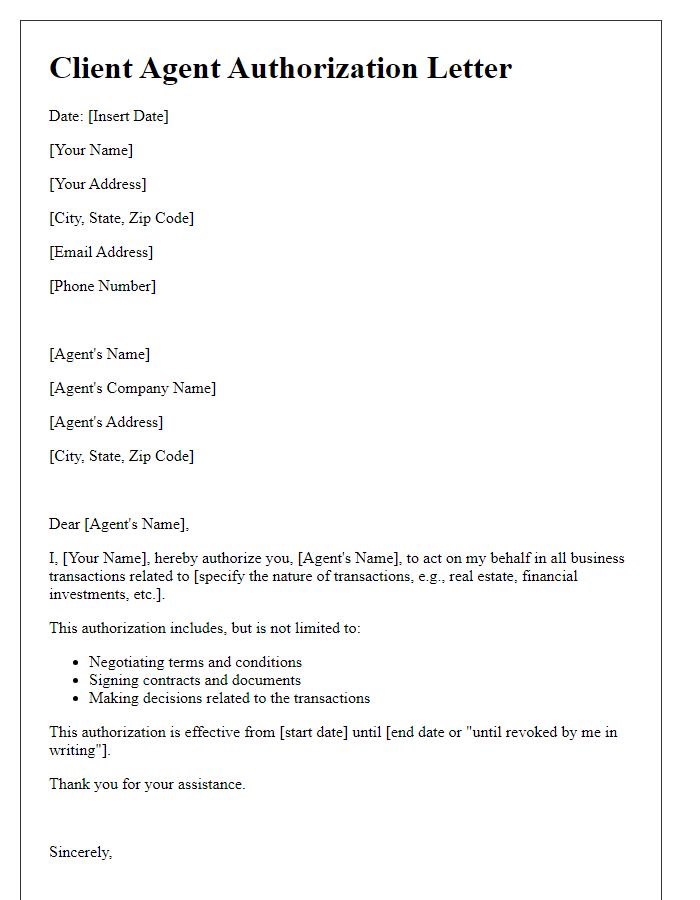

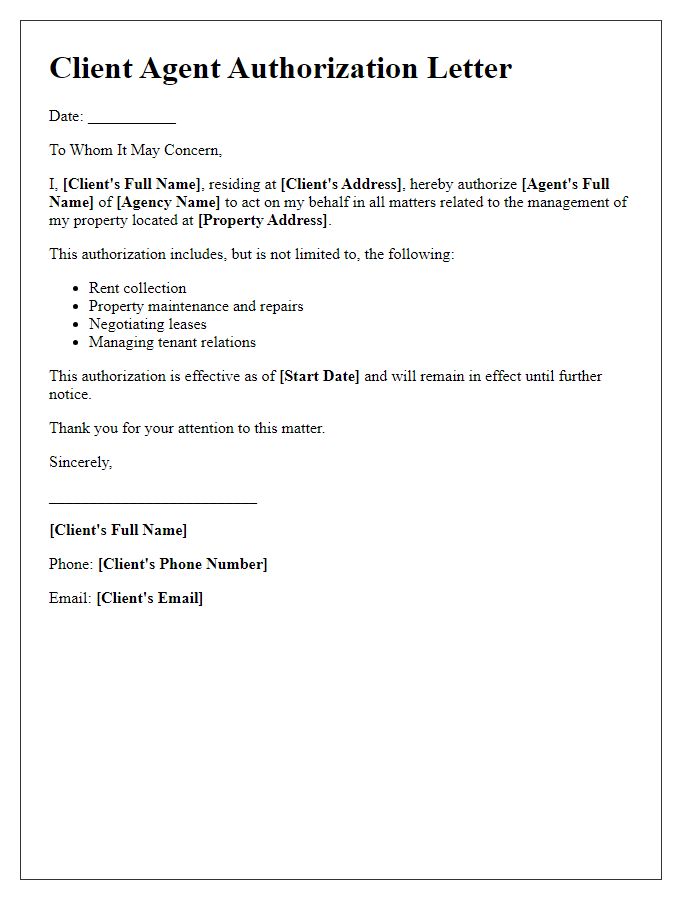
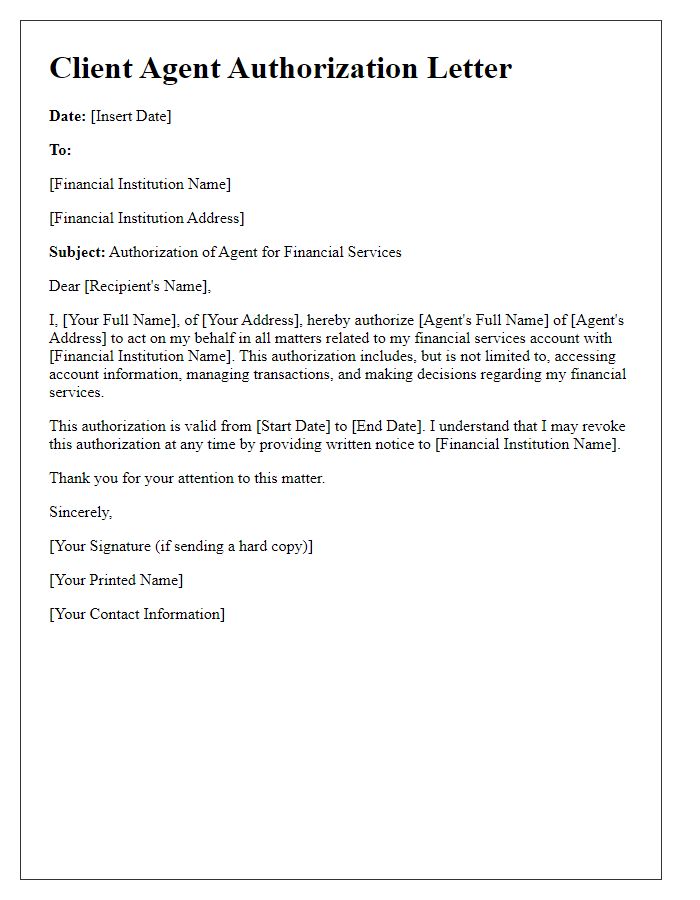
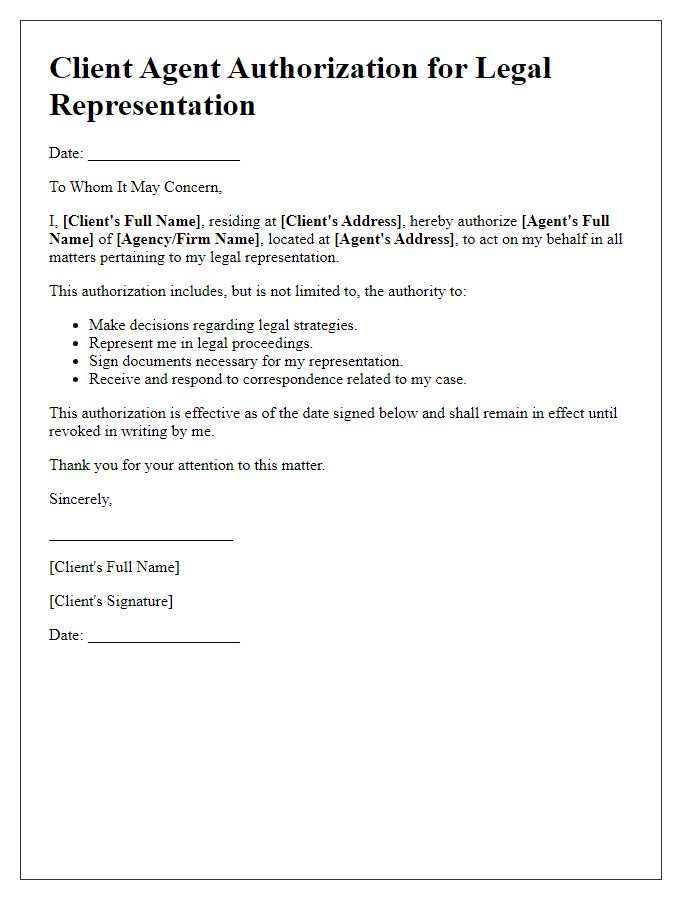
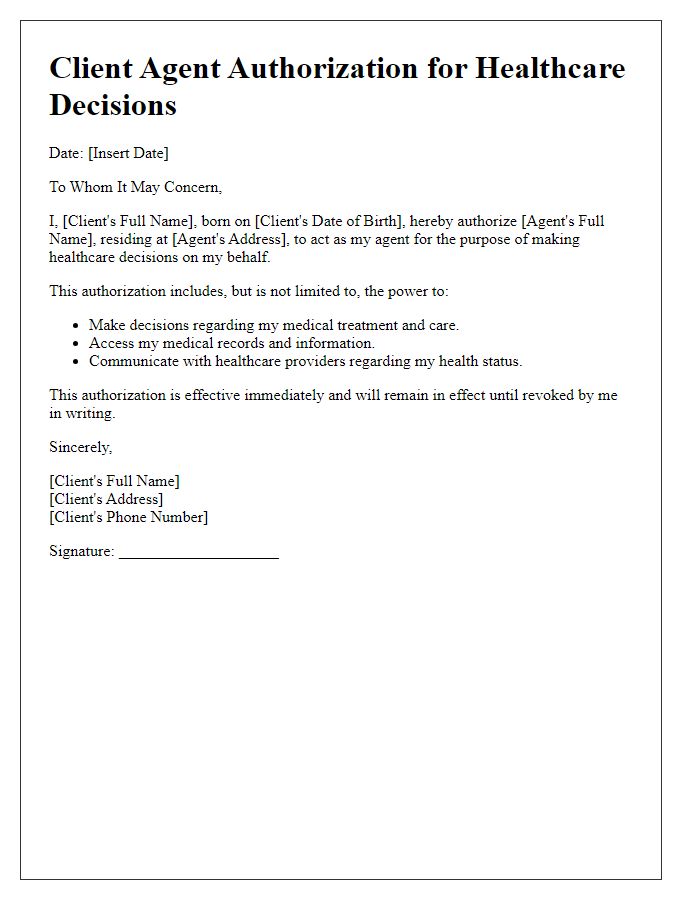
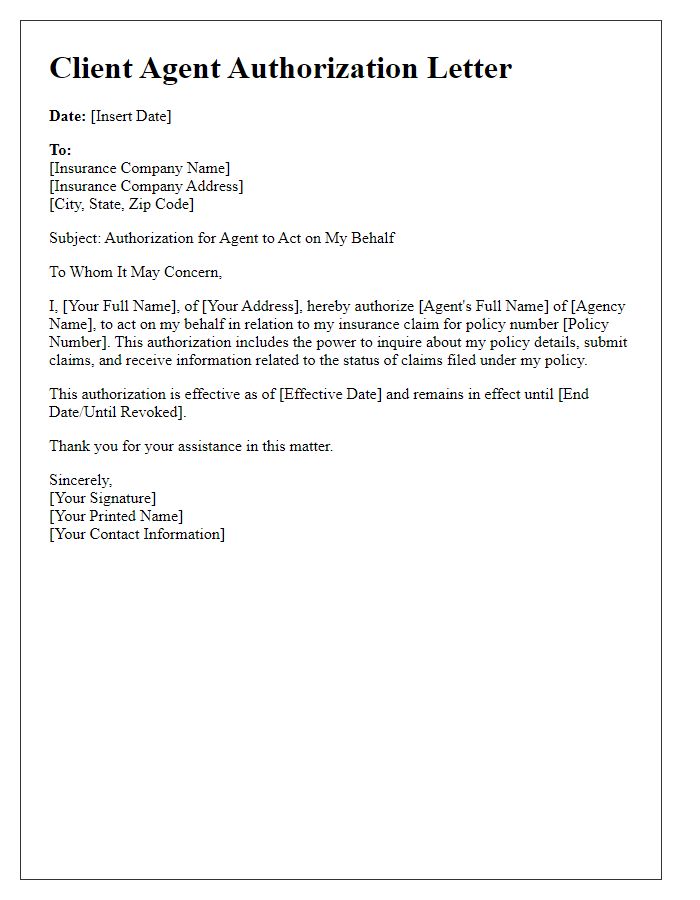
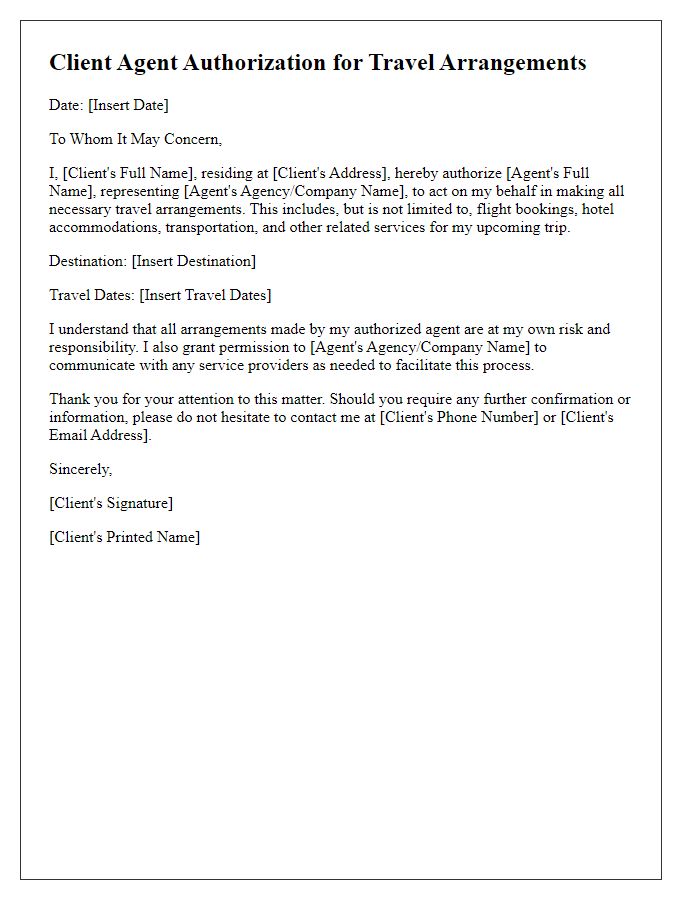
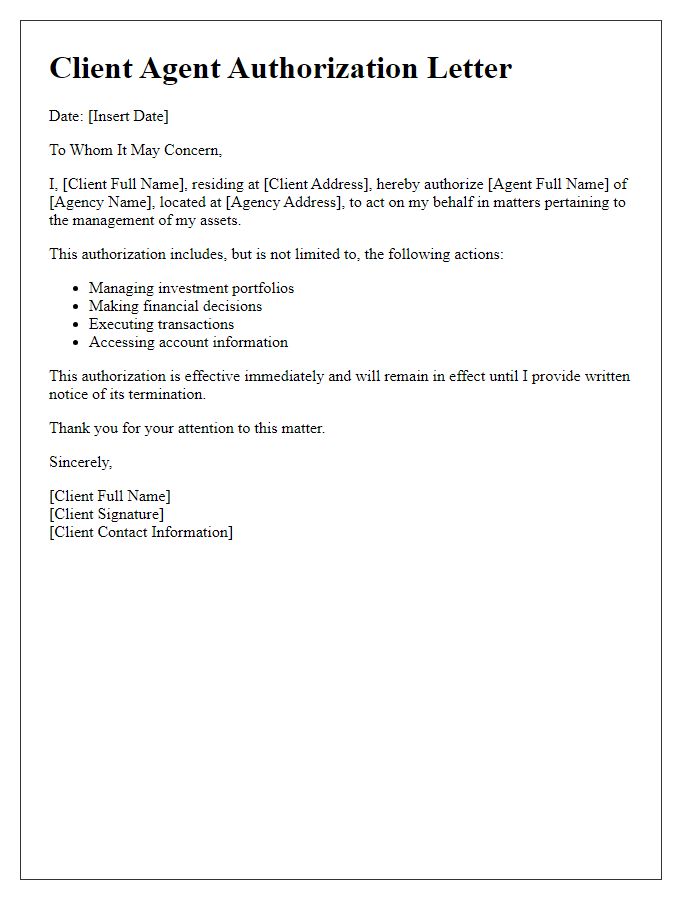
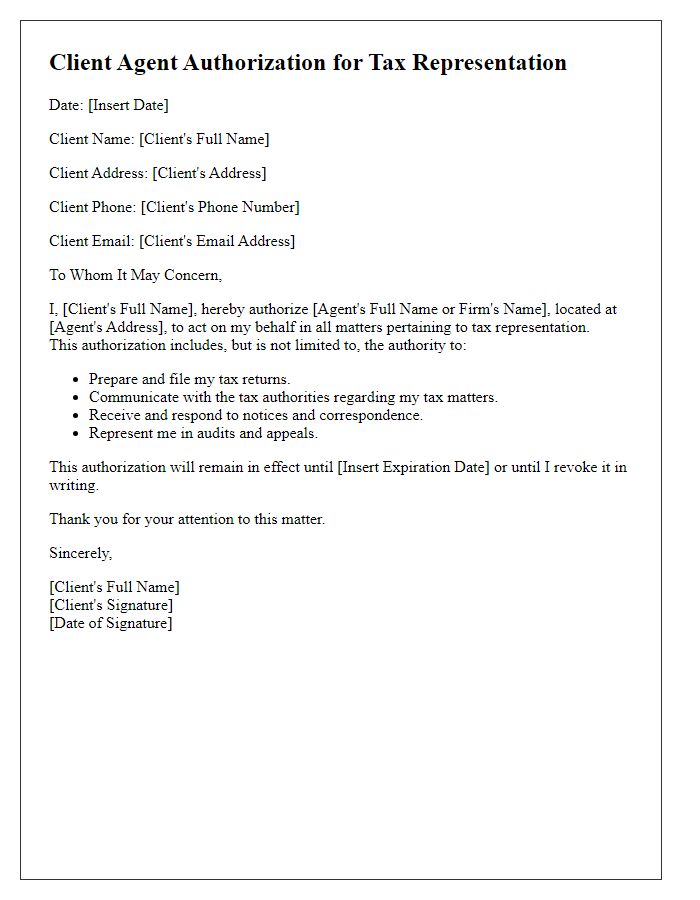
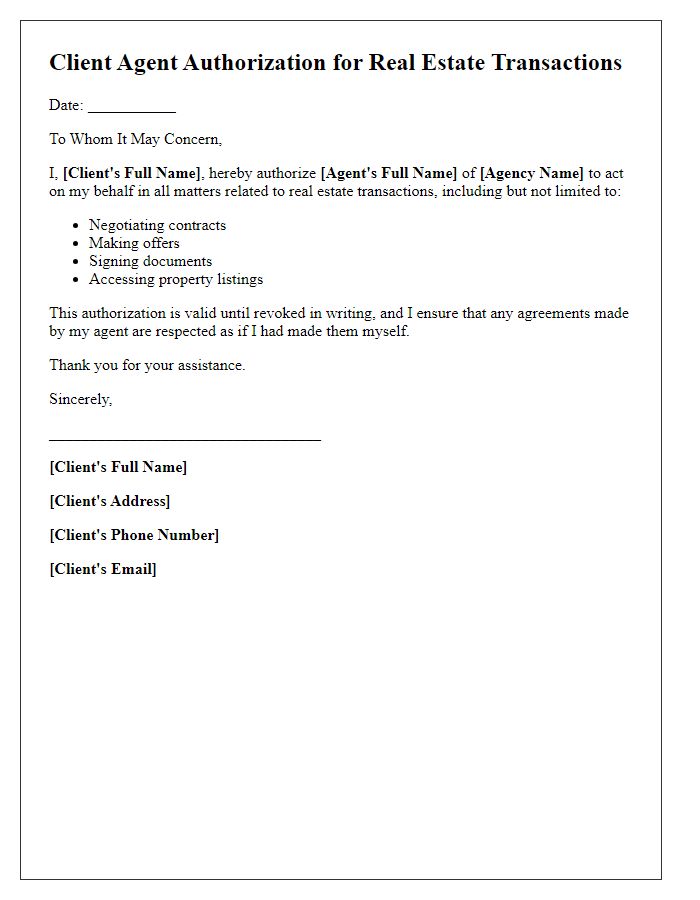


Comments